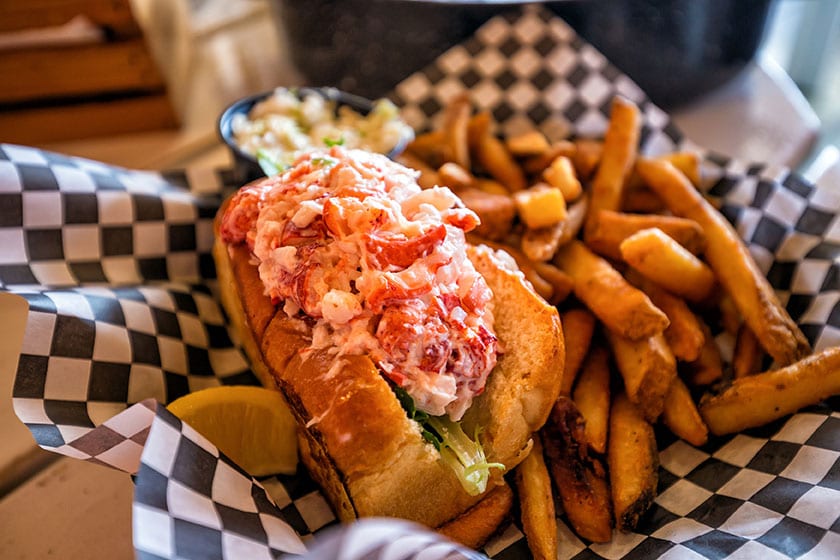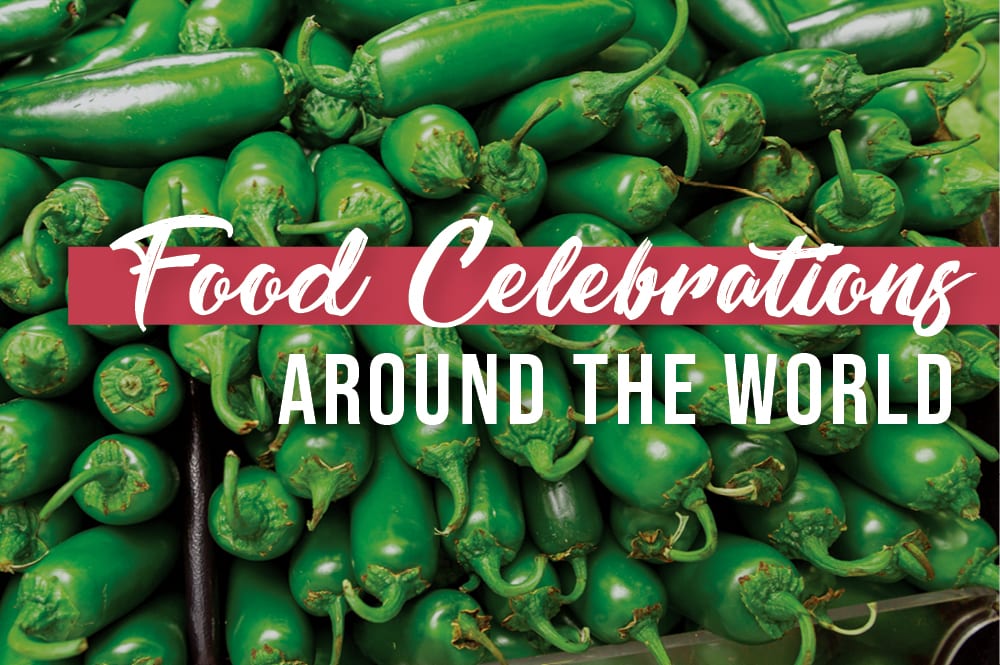
If you’ve ever wondered about how people celebrate food around the world, taking a look at international food festivals is the perfect start to satiating that curiosity. Food celebrations around the world give in-depth insight into cultures, from the people to the agriculture to the beliefs. Before we get into the top 5 food festivals around the world, let’s consider a brief history of food festivals.
Food festivals throughout the world are often based on the traditional farming techniques while historically aligned with culturally significant food harvesting periods. According to this article, the most original form of celebration for food is the Harvest Festival. “Dating back further than Christianity,” the article says, “the festival celebrates the year’s crops and is a way of giving thanks.” As the article continues, the first day of harvest (called “Lammas Day”), bread was traditionally baked to celebrate the first harvest of the wheat crop. The end of the harvest was celebrated with a large meal when all of the harvest had been safely brought in. Today, food celebrations are still popular and remain an ever-growing experience for millions around the world.
- Every Easter, the Brotherhood of the Giant Omelette gathers in Bessières, France to crack more than 15,000 eggs, cook a giant omelette, and distribute portions to thousands of observers who flock to the festivities. According to a foundational story, Napoleon Bonaparte, while visiting the area, enjoyed his eggs so much that he asked that a giant omelette be prepared for his troops. So now, each Easter, the cooks don chef’s whites and toques. Wielding enormous wooden spoons that look more like oars, they stir the eggs in a massive pan over an open fire in the town square. The multi-day festival invariably includes dancing, music, or parades, but the omelette-making is the main event.
The organization, which is also known as the Knights of the Giant Omelette, takes their mission seriously: “to prepare and serve, free of charge and full of joy, a giant omelette.” The first event, in the ’70s, used a few thousand eggs. It’s not only grown in egg count, but leapt borders: Local chapters cook giant omelettes in six other cities, from neighboring Fréjus, France, to Pigüé, Argentina.
- La Tomatina is a food fight festival held on the last Wednesday of August each year in the town of Buñol (history) near to Valencia in Spain. Thousands upon thousands of people make their way from all corners of the world to fight in this ‘World’s Biggest Food Fight’ where more than one hundred metric tons of over-ripe tomatoes are thrown in the streets.
Prior to 2013 anywhere from 40,000 to 50,000 (reported to be 50,000 in 2012) people crammed into this huge tomato fight, greatly expanding Bunol’s normal 9,000 person population. Since 2013 official ticketing has been in place limiting the number of participants to just 20,000 lucky people.
- In Maine, U.S.A., lobsters are sort of a big deal. In 1947, the Rockland lobster festival was an idea to revive the communities in Maine’s Mid Coast. Since then, it has become a world-recognized celebration of local lobster and other seafood, attracting visitors from across the United States, Asia, and Europe.
The festival always begins on the Wednesday before the first weekend of August and ends on the following Sunday. Tickets for general admission are available at each gate. However, you might not know that more than 1,300 volunteers from within the community and beyond run this annual event. In addition, below are nine more things that you may not know about the festival. The Tens of thousands of visitors go to Rockland Harbor Park for the Maine Lobster Festival. Although you get to listen to nationally renowned entertainers, the main attraction of this five-day event is the chance to feast on various lobster dishes.
- Mid-Autumn Festival, or Mid-autumn Day, is the second grandest festival in China after the Chinese New Year. It is named so for that it is celebrated on the 15th day of the 8th lunar month, which is always in the middle of the autumn season in China. The day is also known as the Moon Festival, as at that time of the year the moon is believed to be at its fullest and brightest and Chinese always worship the moon and appreciate the full moon on that day.
In Chinese culture, full moon symbolizes reunion, so that they reunite with their families for celebrations. They worship the moon together, appreciate the moon together, enjoy reunion dinner and even share one mooncake to celebrate the reunion. Mooncakes are cookies with various fillings like nuts, read bean paste, lotus root paste, egg yolk, meat, and fruit, etc. They are usually round to symbolize the full moon and family reunion.
- The Mei-Ramew festival held in Meghalaya in December every year is a festival that celebrates indigenous foods. Mei Ramew is a unique food festival that is organized in the state of Meghalaya to bring the old traditional cuisines to limelight and introduce them to the new generations. The festival is organized in collaboration with the state government and majorly by the North East Slow Food and Agrobiodiversity Society (NESFAS). The main aim of the festival is to revive the old ways of cooking food and prepare the recipes that got lost or eliminated from our lifestyle because they either required an elaborate cooking process or were time-consuming.
The festivities begin with workshops and demonstrations with experts, taste workshops of indigenous food varieties and innovative dishes, and discussions on agrobiodiversity related issues. A two-day festival displays and sells indigenous dishes and forest-foraged and locally grown foods.
No matter where you are in the world, how you say it, food 🍟 to طَعام 🥙 to comida 🌯 to 食物 🍱 to cibo 🍝, the unique, tasty flavors of different cuisines around the world are delightful. Food festivals serve as platforms for sharing agriculture, biology, diversity, and are a cultural expression of traditional food and agricultural traditions! They allow people to exchange ideas and highlight the challenges that indigenous people face, empowering communities with a sense of ownership. The next time you’re traveling the world, ask about what food festivals you could attend.


